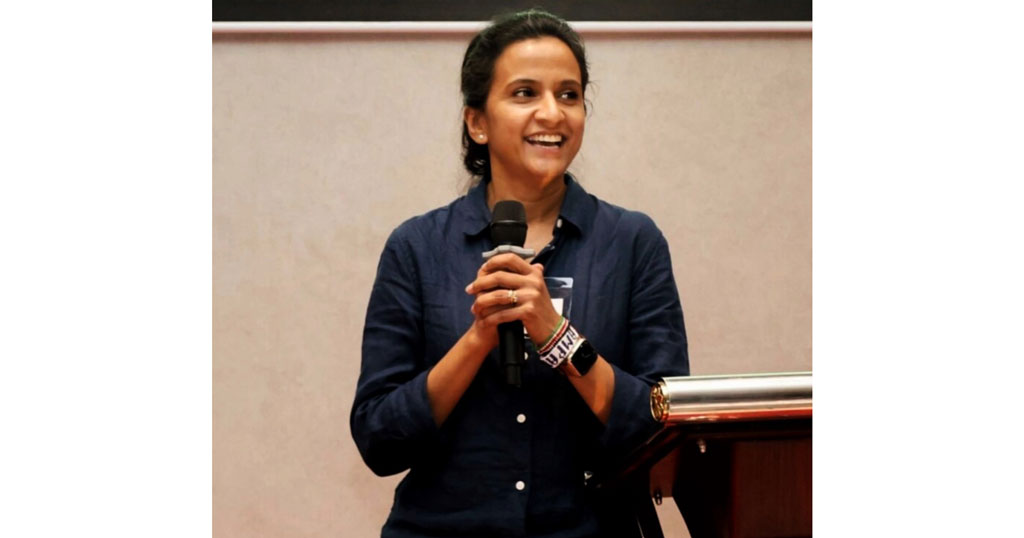Jane von Gaudecker, Ph.D., RN, and associate professor at the Indiana University School of Nursing, has received a $2.4 million grant from the National Institute of Neurological Disorders and Stroke and the Fogarty International Center. Chrispine Owuor Oduor, MBChB, MMed, of Moi Teaching and Referral Hospital in Kenya is the co-principal investigator.
The grant will fund a five-year study on “Bridging the Treatment Gap by Expanding Access to Care for People with Epilepsy in Kenya (BEACON).” Through a cluster-randomized trial in western Kenya, von Gaudecker and the BEACON team will assess the effectiveness of task-sharing supported by the epilepsy medical records system in improving access to and retention in care of people with epilepsy and epilepsy care outcomes. Through task-sharing, Kenyan healthcare workers will be trained in epilepsy care, which will allow less specialized staff to effectively manage treatment tasks and optimize resources.
This is the first NIH-funded global health grant for the Indiana University School of Nursing and the first intervention designed to improve access to epilepsy care and care outcomes in western Kenya.
Globally, epilepsy is highest in sub-Saharan Africa. In Kenya, a vast majority of people with epilepsy do not receive appropriate treatment. This study will enhance epilepsy research and clinical capacity by implementing scalable and sustainable strategies to reduce the epilepsy treatment gap in low-resource settings.
“I am delighted that this project will proceed in Kenya,” said Jo Wilmshurst, M.D., and chair of the African Commission of the International League Against Epilepsy. “Local healthcare providers are keen and ready to take on the challenge of addressing the treatment gap. Projects such as BEACON are a strong push toward empowering these practitioners with the task-sharing skills to meet the Intersectoral Global Action Plan on Epilepsy and Other Neurological Disorders (IGAP) targets.”
Dr. von Gaudecker’s team has long collaborated with AMPATH (Academic Model Providing Access to Healthcare), a long-term partnership among multiple North American Universities led by Indiana University, Moi University, and the Kenya Ministry of Health. AMPATH provides the infrastructure for the team to conduct their study.
“This project, led by Drs. von Gaudecker and Oduor, aligns very well with AMPATH’s overall approach,” said Adrian Gardner, M.D., director of the IU Center for Global Health Equity and executive director of the AMPATH Consortium. “The aim is to work with county governments and Moi Teaching and Referral Hospital to implement and evaluate innovative models for improving community access to high quality care in western Kenya.”
Dr. von Gaudecker’s program of research focuses on generating knowledge to improve epilepsy care outcomes and the quality of life of people living with epilepsy in resource-limited settings. She teaches in the IU School of Nursing’s master’s program and is an Indiana University Center for Global Health-affiliated faculty. Dr. von Gaudecker is a certified global nurse consultant (CGNC) through the International Council for Nurses, and a fellow of the American Epilepsy Society. She is the U.S.-based lead for the Academic Model Providing Access to Healthcare (AMPATH) nursing working group and the Vice Chair of the International League Against Epilepsy Nursing Section.
About the Indiana University School of Nursing
Indiana University School of Nursing was established in 1914 with the opening of Long Hospital in Indianapolis. Over 23,000 alumni across the globe are leaders in clinical practice, research, education, and innovation. The master’s and DNP programs were named to the 2024 U.S. News & World Report Best Graduate Nursing Schools and the 2024 U.S. News & World Report Best Online Programs ranked the master’s #2 in the nation. Academic programs include three tracks in the undergraduate program, eight tracks in the master’s program, post-master’s options, a post-master’s DNP, and a Ph.D. The school is nationally and internationally known for its innovative, externally funded research and scholarship in the following areas of excellence, all through the lens of health equity: serious illness care, prevention and health promotion, quality of life and chronic condition management, health and community systems, and nursing education science.


